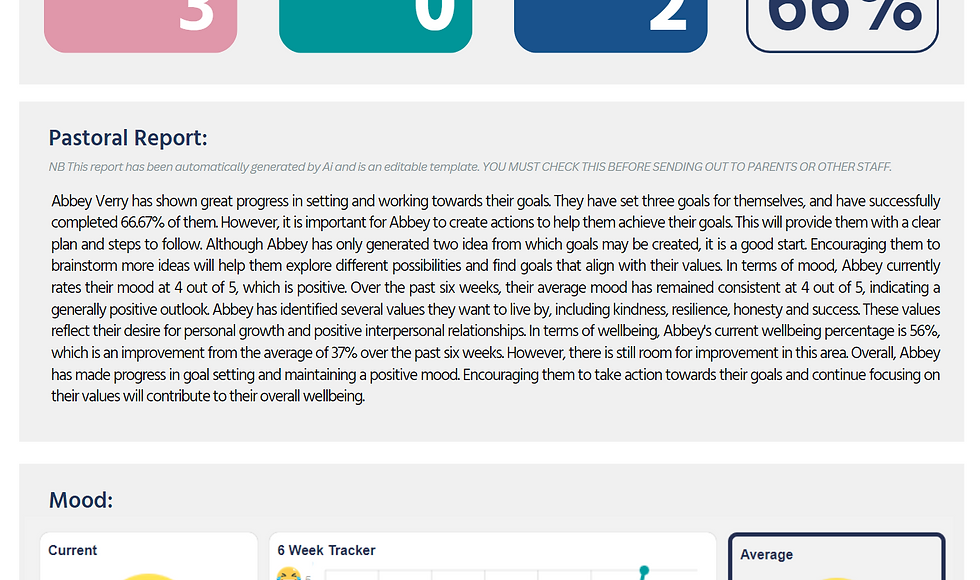Navigating Emotionally-Based School Avoidance: Strategies for Senior School Leaders and Teachers
- Jon Ford

- Sep 7, 2023
- 3 min read
Updated: Sep 8, 2023
With a new term now upon us, the challenges of transitioning back to a regular routine after a long summer break are palpable. As a fully grown adult with established coping mechanisms, even I can attest to the difficulty of this shift. For young people, especially, the return to school can be exceptionally anxiety-provoking. This reality hit home for me this week, witnessing my autistic teenage daughter grapple with the first days back.
Daily reports from our schools confirm that while general anxiety continues to be on the rise and emotionally-based school avoidance appears to be particularly prevalent across the UK. Over the weekend, I came across an insightful article discussing the surge in school avoidance, shedding light on the shared struggles faced by schools and families alike. What surprised me even more was the array of inventive methods schools are employing to gently coax their students through those doors. You can read the article I'm referring to by clicking here.

As the CEO of a school wellbeing app, my immediate thought was:
How can we (and how could youHQ) lend support to schools and students in this situation?
While our app can't physically transport a child to school (though, the notion of a "school Uber" does give one pause for thought!), there may be something else we can do.
A significant discovery we've made with youHQ is its ability to identify struggling students early on, emphasising the power of prevention. What's crucial, however, is equipping young people with the tools to manage anxiety.
Enter our new MoodSupport feature, which not only allows children to articulate how they feel but also provides them with resources and tools tailored to their current mood and emotion.
Many of the strategies to combat emotionally-based school avoidance centre around addressing anxiety while setting manageable goals and bolstering confidence over time. Therefore, I believe that schools utilising youHQ have a readily available tool at their disposal.
Here are some suggested tips for aiding students dealing with emotionally-based school avoidance:
Open Communication: Establish a safe and open line of communication with both the student and their parents. Regular check-ins, facilitated by youHQ's mood check-in feature, can provide a vital outlet for them to express their feelings and concerns.
Empathetic Listening: When the student does communicate, it's crucial to actively listen without judgment. Validating their emotions and affirming the importance of their feelings can make a world of difference.
Collaborative Goal Setting: Collaborate with the student to set achievable goals, including small steps towards attending school regularly, participating in specific activities, or completing assignments. youHQ's built-in goal-setting feature, gamified to reward students upon achievement, can be a powerful tool.
Flexibility: Be open to adjusting deadlines and assignments whenever possible. Offering alternative methods of assessment can accommodate the student's unique needs.
Provide Predictability: Establishing a predictable routine can significantly reduce anxiety. Clearly communicating schedules and any changes in advance can be immensely reassuring.
Mindfulness and Relaxation Techniques: Introduce techniques such as deep breathing exercises or mindfulness practices, which can help the student manage their emotions and anxiety. youHQ offers a range of tools tailored to support students experiencing anxiety, which can bolster schools existing PSHE/SEL curriculum.
Empower Peer Support: Encourage positive relationships with peers by assigning a buddy or group where the student feels comfortable and supported.
In conclusion, addressing emotionally-based school avoidance necessitates a holistic approach, involving open communication, empathy, goal-setting, flexibility, predictability, mindfulness, and peer support. With youHQ as a valuable resource, schools have an added layer of support in their efforts to create a nurturing and inclusive learning environment for all students.
This article was created by Jon Ford, the founder and CEO of youHQ and Life on Time Ltd. Jon is a trained performance and wellbeing coach.
At youHQ, we believe in helping the mental health of teachers and students. Our cutting-edge app is changing the way schools care for their people.
Learn more about our work and our platform here and sign up for a free trial.




Comments